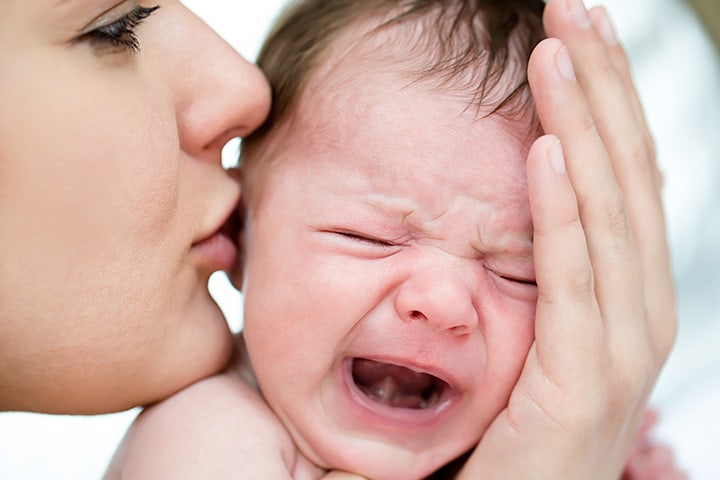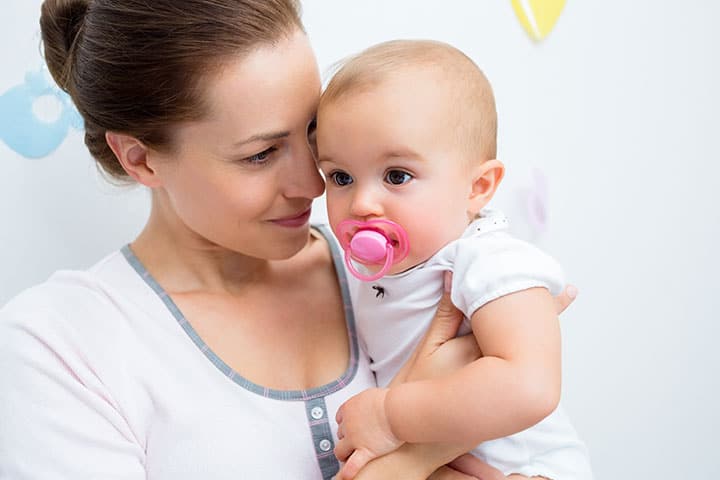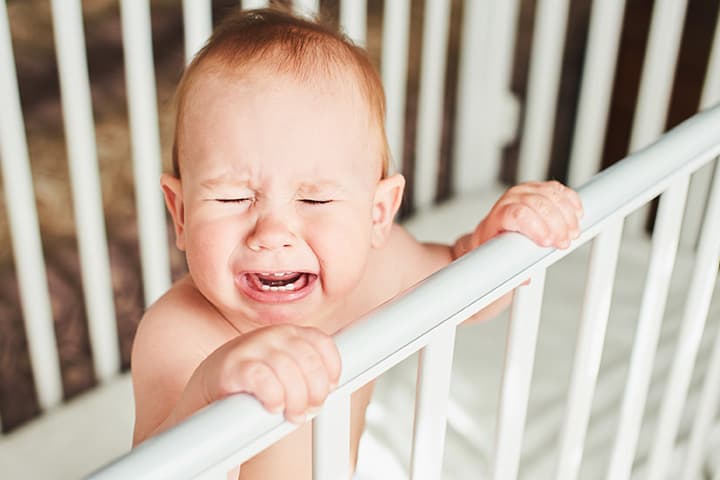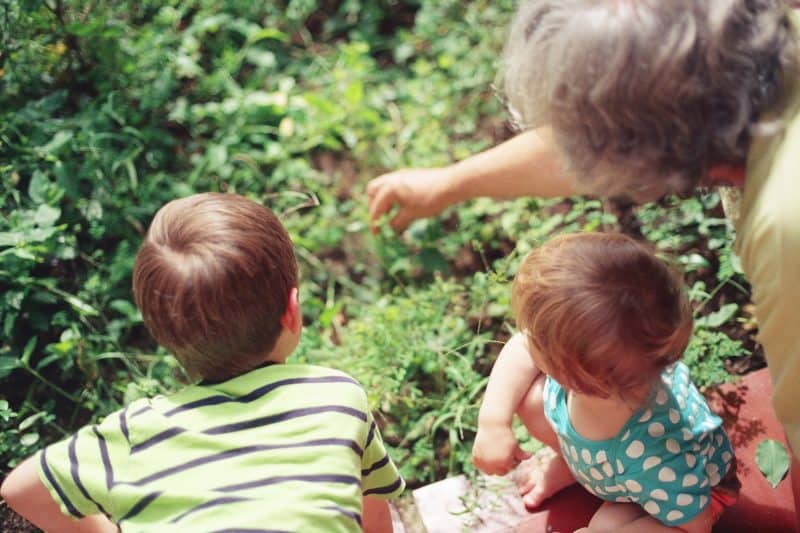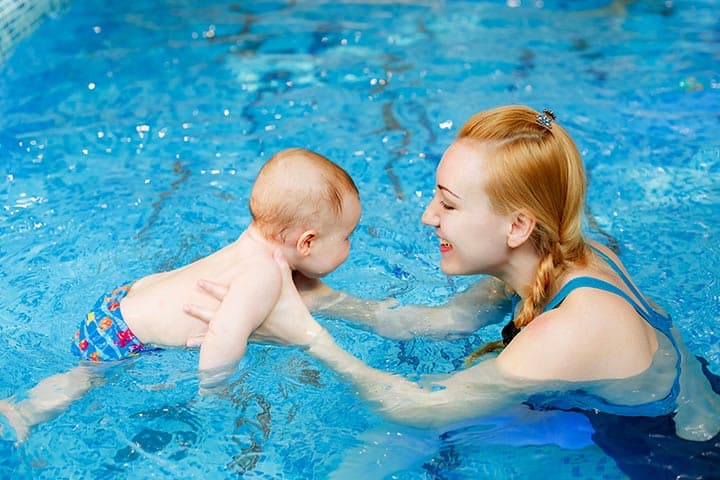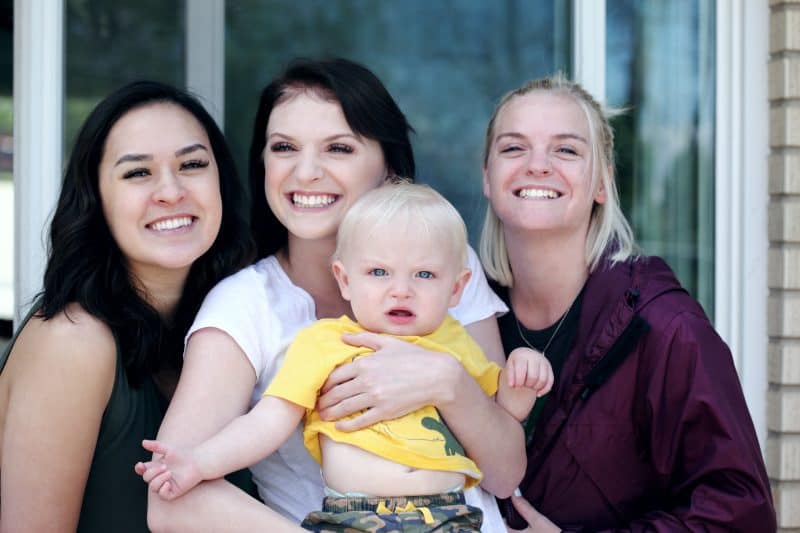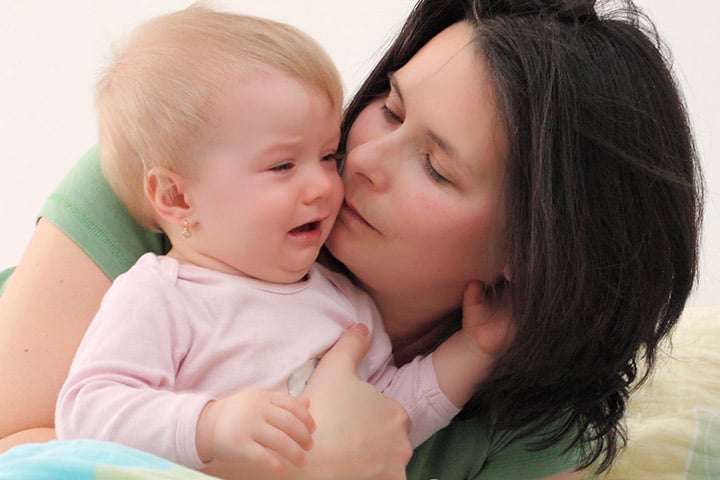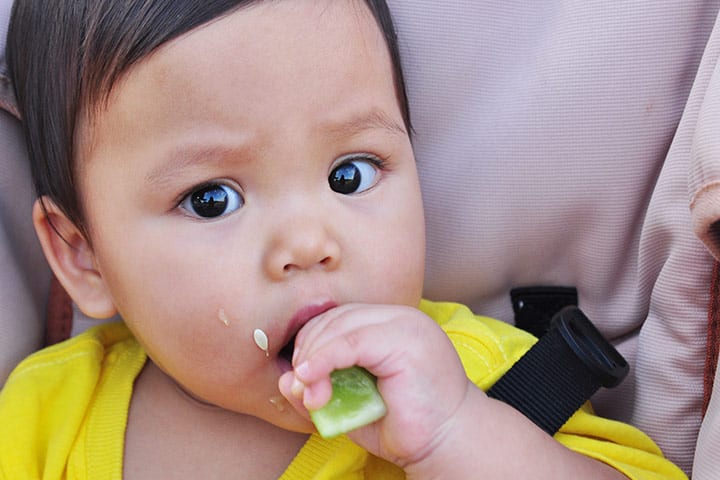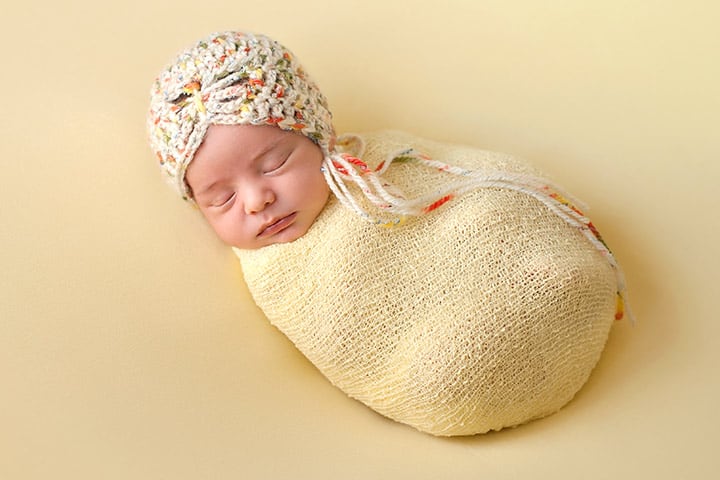Stimulation and interaction are essential for the overall development of babies. It is necessary to talk and play with your little one often, as sensory experiences play a crucial role in the baby’s overall development, by building connections between learning and brain cells. Overdoing it, however, is not beneficial as it may disturb the baby’s sleep besides hampering the emotional engagement. It is essential to identify when the baby reaches his limit and feels over-stimulated.
Toronto’s Hospital for Sick Children, Infant Mental Health Promotion director Chaya Kulkarni says, an occasional misreading of baby’s cues of overstimulation is inevitable and not a concern. But, “there’s always the chance that if the parent repeatedly doesn’t respond — if you continue trying to play the game or ignore his distress — the baby will zone out, withdraw, or mentally retreat,” she adds.
MomJunction helps you understand how to identify and avoid overstimulation.
What Is Overstimulation In Babies?
Overstimulation is a condition where your baby has had an overload of experiences. Babies may get over-stimulated due to a lot of activity, noise, and sensation, as they cannot process it all. They need some time to calm down. An overstimulated baby ends up crying, and dramatic meltdowns are observed.
Causes of Overstimulation
Let us check for the primary culprits of overstimulation. Anything too much is too bad. Your little one may get overstimulated if he is exposed to too long activity; spends a long time with friends or relatives; is exposed to loud sounds, busy sights, pungent smells, or technology; or if his routine gets disturbed. It also depends on the temperament of the little one. Some babies are easy-going, while some are easily overwhelmed. An activity or environment can be entertaining for some babies, but overwhelming for others. Duration and intensity of an activity can also contribute to overstimulation.
Newborns may get stimulated even faster as they do not have matured nervous systems to regulate many things that are flooding into it. Even the simplest of acts like feeding, handling, talking, and making an eye contact can overwhelm a neonate. Every simple thing is incomprehensible and new for the infant as all of them are different from what the baby experienced in the mother’s womb. You will have to wait for many months for your baby’s system to mature enough to regulate things.
Now that we know a few causes for overstimulation, it is important to look out for signs to stop your little one from getting overstimulated.
11 Signs Of Overstimulation (SOS) In Babies
The baby sends signs of overstimulation (SOS) and you will have to understand them to avoid it. SOS can be classified into two types like Body SOS and Behavioral SOS.
Body SOS: An overstimulated baby may show body SOS like:
- change in skin color from normal to bright red or pale
- change in movements like showing tremors or jerks
- subtle changes in breathing patterns like breathing fast
Behavioral SOS: The Behavioral SOS include:
- rubbing eyes
- spreading toes and fingers
- covering his face with hands
- spacing out (looking away from you)
- trying to switch off (turns head away from you)
- becomes fussy, cranky, or drowsy (shutting down)
- stiffens up instead of relaxing
- shows over attention or hyper-vigilant
Pay attention to his responses and if you observe any of these SOS, decrease stimulation and increase support. Low down the tone and speak slowly. Simply holding the baby for few minutes should do the trick. You may try swaddling the baby, encourage him to suck, or simply sway the little one. All babies can get overstimulated now and then, but preterm babies or the ones with physical challenges frequently send SOS.
5 Ways To Avoid Overstimulation
Studies indicate that baby overstimulation leads to behavioral differences and deficits in cognitive performance (1). So it is better to avoid it and is not that difficult. The key lies in aiming at the right balance. It can be achieved by following guidelines.
1. Keep an eye on early warning signs
Responding to the early warning signs from your baby is essential to avoid a crying and stressed out baby. Too much fun can cause overstimulation irrespective of the time of the day, and the baby may need a break. Figure out the signs and respond.
2. Time it well
Remember that timing means everything! Figure out the best time for your baby to be alert, content, and interested in socializing and plan accordingly. Most kids are happiest in the mornings and after afternoon naps. Check out the suitable time for your baby and go ahead with the activity or outing.
3. Preparation is the key
Plan your outings or gatherings well, so that the baby do not get overwhelmed. Take snacks, extra clothing, favorite toys, light blankets, and other essentials, if you are moving out with your baby. Head to a quiet place if your baby is sensitive to crowds. Know your baby cues and share them with other family members handling the baby.
4. Take breaks
Plan well and ensure that your little one is prepared for the fun. He should have some time in the middle to communicate with you if he wants to. If you notice that your baby is too excited or tired, have little quite time with him during breaks. Ensure that your baby is ready and shows engagement clues before finishing the break. These breaks are useful in avoiding overstimulation.
5. Say ‘No’ to technology
Say ‘No’ to iPad and baby apps that are too stimulating. Doctors do not recommend screen time for babies. Stick to basics, like a pot and spoon.
How To Deal With Overstimulated Babies?
If your little one has reached the limit, hold him close to you and soothe to reassure him calmly. A few babies may not like to be touched or picked if the situation is very stimulating. In such cases, take the baby to a quite place, dim the lights, and minimize the activity. Swaddle him or talk gently. Offer him a feed or pacifier. He will settle down in some time.
Get back to his schedule. See to it that he sleeps, feeds, and plays. This consistency works wonders in babies. Stick to schedules to make him feel secure, loved, and attached.
Above all, the best thing you can do is to trust your instinct. You are the best person to judge what is too much for your baby and what is needed to calm him down.
5 Benefits Of Avoiding Overstimulation
While it may seem like you have to put a lot of effort and spend a lot of time in guessing and avoiding overstimulation in your baby, it can be helpful in many ways.
- The baby feels secure and develops confidence in you.
- A little prevention can hugely help in keeping everyone around happy, besides your baby.
- You can prevent unsuccessful time-outs or bribes to calm down your baby.
- It will get easy to work with the little one’s natural rhythms and abilities.
- Everyone around can have fun and the baby would enjoy growing up happily.
FAQs
1. Why does an overstimulated baby cry a lot?
A. When the baby is overstimulated, he may get too tired as he is awake for a longer time, which makes him cry as he struggles to relax.
2. Can my baby overcome overstimulation?
A. Yes, babies can overcome overstimulation as they grow. When the baby learns to crawl and move around, he can create his own change in stimulation. Until then, you have to help him by frequently carrying him with you. If you keep your little one down, ensure that you provide objects within reach, good music, or colorful things to look at.
While the basic temperament remains consistent in babies, the reactions may change over time. As the baby grows, he develops the skill to deal with things and becomes social. An activity that is overwhelming for a nine-month baby may turn his favorite after a few months.
3. Is under stimulation possible in babies?
A. Yes, under stimulation occurs when the environment is familiar and boring for the baby. It is a situation where the baby may be intellectually starved and may be stressed as a result of it. This could be a result of the lack of new toys or experiences. Follow your baby’s own cues to find out if he is crying due to under stimulation or overstimulation.
We hope you would be comfortable in understanding your baby’s cues and respond accordingly. If you have more experiences or suggestion in dealing with an over-stimulated baby, do share with fellow mommies by commenting below.

